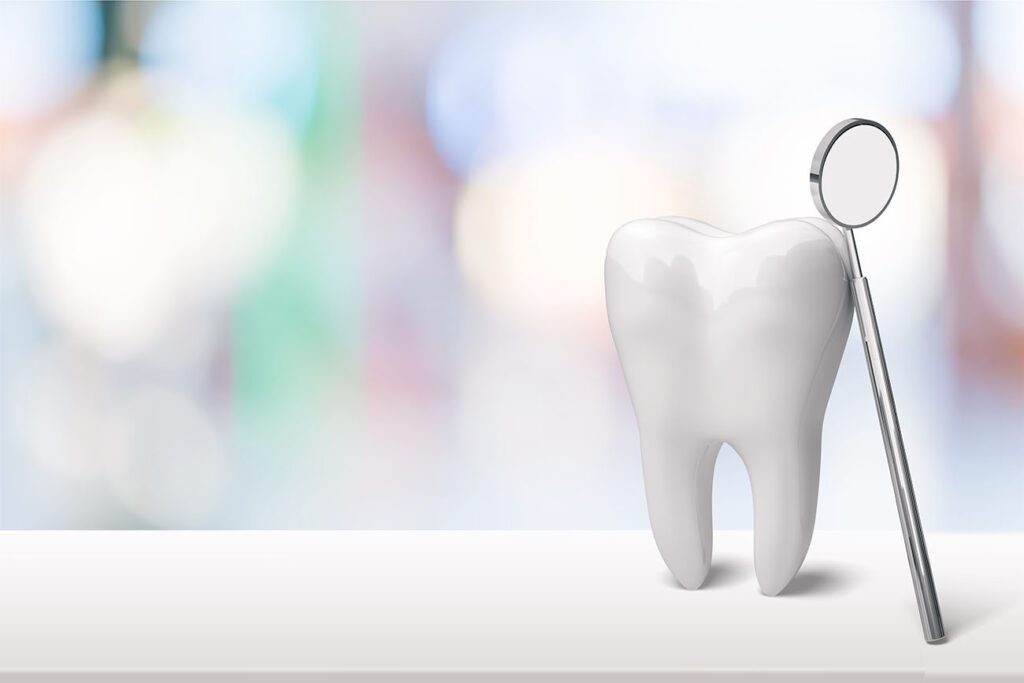Do you want to learn more about your oral health and dental care at Wesley Dental? Read answers to FAQs from our dental patients in Greenville, TX. Here we will review signs of common dental problems and how we can transform your oral health at Wesley Dental. If you would like additional information on our patient services, please visit For patients.

Dental FAQs in Greenville, TX
Discover more about our dental office with answers to these common patient questions:
How can I improve my oral hygiene between dentist appointments?
To enhance your oral hygiene at home, make sure to brush your teeth in the morning and before bed. Use toothpaste that contains fluoride to help battle cavities. Don’t forget to floss between your teeth to dislodge food particles. Also, try rinsing with mouthwash to freshen your breath and kill germs. Remember to visit the dentist for regular checkups to keep your teeth healthy and strong.
Are electric toothbrushes better than manual ones?
Electric toothbrushes can be better than manual ones because they help remove more plaque and prevent cavities. The vibration and rotation of the electric brush reaches spots in your mouth that are hard to clean with a manual brush. Electric brushes can also help people with dexterity issues brush their teeth more effectively. However, manual brushes can be as good if used correctly and regularly.
Do you provide sedation dentistry for nervous patients?
Yes, Wesley Dental offers sedation dentistry for patients who are anxious or scared about visiting the dentist. Our sedation options can help you feel calmer and relaxed during your appointment. The sedation options we provide are safe and can help make your experience more comfortable. Please let us know ahead of time if you would like to use this service.
Do you offer emergency dental care?
Yes, we provide emergency dental care for when you have a sudden toothache or injury to your teeth. Our team is ready to help you with any urgent dental problems you may have, such as a broken tooth or severe pain. You can call our office right away and we will get you in as soon as possible. Getting you the care you need to feel better and keep your smile healthy is important to us.
What should I expect during my first visit?
During your first dentist appointment with us, we will have you fill out paperwork about your medical history. Your dentist will look over your teeth and gums, and may take x-rays of you’re your oral structure under the gums. We will also clean your teeth and talk to you about how to take care of your teeth at home. If you have any questions or concerns, be sure to ask your dentist during your visit.
What is the difference between a regular dental cleaning and a deep cleaning?
A regular dental cleaning is a service we provide to patients twice a year at regular dental checkups. This type of teeth cleaning helps keep your teeth and gums healthy by removing the built-up plaque and tartar. We will perform a deep cleaning, also known as scaling and root planing, if you have gingivitis or gum disease. This treatment goes deeper under your gums to remove bacteria and tartar. This helps prevent further damage and keep your mouth healthy.
Is fluoride treatment necessary?
Fluoride treatment is good for keeping our teeth healthy and strong. We use fluoride to help prevent cavities and fight off germs that harm your teeth. This common and safe dental treatment offers your teeth a shield against bad stuff that can hurt them. So, yes, getting fluoride treatment is vital to help keep our smiles bright and healthy.
What should I do if I have bad breath?
Bad breath (halitosis) can be an unpleasant and embarrassing condition. Many may not realize we have bad breath, but everyone has it occasionally, especially in the morning.
One may have bad breath for various reasons. In healthy people, the primary reason is due to microbial deposits on the tongue, especially the back of the tongue. Some studies have shown that brushing the tongue reduces bad breath by as much as 70 percent.
How often should I get a dental cleaning?
You should get a dental cleaning in our Greenville, TX office every six months. Regular cleanings help keep your teeth and gums healthy by removing plaque and tartar that brushing and flossing can’t remove.
Visiting our dentist twice yearly also helps catch problems like cavities or gum disease early, making them easier to treat. Some people may need cleanings more often if they have certain dental issues, so ask our dentist what’s best for you.
Are amalgam (silver) fillings safe?
Over the years, there has been some concern about the safety of amalgam (silver) fillings. An amalgam blends copper, silver, tin, and zinc bound by elemental mercury. Dentists have used this blended metal to fill teeth for over 100 years. The controversy is due to claims that exposure to the vapor and minute mercury particles can cause various health problems.
According to the American Dental Association (ADA), up to 76% of dentists use silver-containing mercury to fill teeth. However, the ADA also states that silver fillings are safe and that studies have failed to find any link between silver-containing mercury and any medical disorder.
How can I tell if I have gingivitis or periodontitis (gum disease)?
Four out of five people have periodontal disease and don’t know it! Most people are unaware of it because the disease is usually painless in the early stages. Unlike tooth decay, which often causes discomfort, it is possible to have periodontal disease without noticeable symptoms. However, regular dental check-ups and periodontal examinations are essential and will help detect if you have gum problems.
How can cosmetic dentistry help improve the appearance of my smile?
If you’re feeling somewhat self-conscious about your teeth or want to improve your smile, cosmetic dental treatments may be the answer to a more beautiful, confident smile.
Cosmetic dentistry has become very popular in the last several years due to the many advances in cosmetic dental procedures and materials available today and because patients are becoming more and more focused on improving their overall health. This includes dental prevention and having a healthier, whiter, more radiant smile.
What are porcelain veneers, and how can they improve my smile?
Porcelain veneers are very thin shells of tooth-shaped porcelain that are individually crafted to cover the fronts of teeth. They are very durable and will not stain, making them a popular solution for those seeking to restore or enhance the beauty of their smile.
Are cavity treatments painful?
Cavity treatments are usually not painful. Dentists use local anesthesia to numb the area around the cavity, so you won’t feel much during the procedure. Some people may feel a little pressure, but it shouldn’t hurt. After the treatment, you might feel some sensitivity in the treated tooth for a few days, but this is normal and should go away. If you’re nervous about the treatment, talk to our dentist about ways to stay comfortable.
What can I do about stained or discolored teeth?
Professional teeth whitening (or bleaching) is a simple, non-invasive dental treatment used to change the color of natural tooth enamel. It is an ideal way to enhance the beauty of your smile. Over-the-counter products are also available but are much less effective than professional treatments and may not be approved by the American Dental Association (ADA).
As we age, the outer layer of tooth enamel wears away, eventually revealing a darker or yellow shade. The color of our teeth also comes from the inside of the tooth, which may become darker over time. Smoking and drinking coffee, tea, and wine may also contribute to tooth discoloration, making our teeth yellow and dull.
Certain childhood medications, such as tetracycline, can sometimes discolor teeth. Excessive fluoridation (fluorosis) during tooth development can also cause teeth to become discolored.
